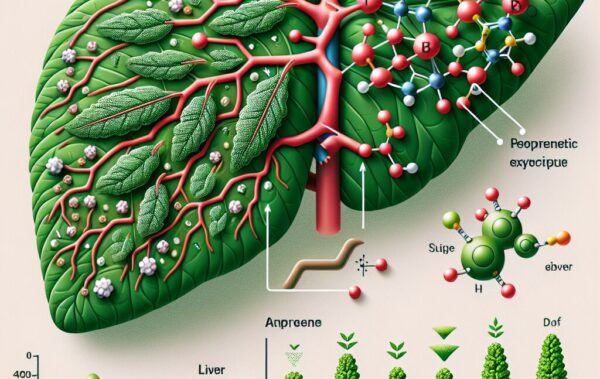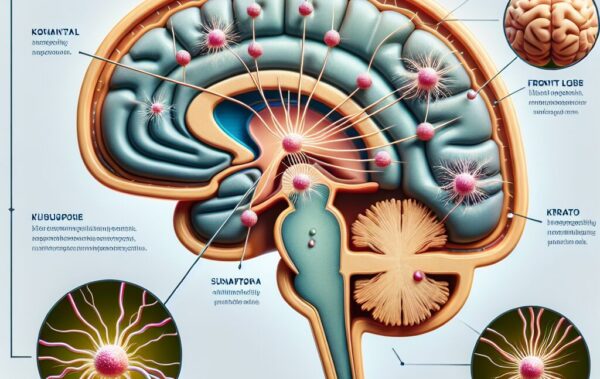- Understanding Kratom and Its Active Compounds
- The Science of Appetite: How Kratom Affects Hunger Signals
- Kratom and Weight Management: What Research Tells Us
- The Pros and Cons of Using Kratom for Appetite Control
- Frequently Asked Questions About Kratom and Weight Management
Kratom is a tropical evergreen tree indigenous to Southeast Asia, and it has been used in traditional medicine for centuries. The leaves of the kratom tree contain a complex array of bioactive alkaloids, with mitragynine and 7-hydroxymitragynine being the most prominent. These active compounds are believed to interact with opioid receptors in the brain, yet they do not produce the same high level of addiction or side effects as classical opioids do. Kratom has gained popularity in Western countries as a supplement for various purposes, including mood enhancement, pain relief, and, notably, appetite control.
When exploring Kratom’s influence on appetite regulation, it’s essential to dig into the pharmacology of its alkaloids. Users report that Kratom has anecdotally been linked to suppressing hunger, suggesting a decrease in appetite which can be beneficial for those trying to manage their weight. This suppression is thought to be mediated by Kratom’s action on certain neurotransmitter systems that are involved in the sensation of hunger and satiety.
However, it is paramount to recognize that research on Kratom is still relatively sparse, and more scientific studies are needed to fully understand its mechanisms of action. Given Kratom’s interaction with opioid receptors, it’s reasonable to consider that it may influence the complex neurochemical pathways that regulate our appetite and food intake.
For those interested in trying Kratom, it is available in various forms, including powders, capsules, extracts, and edibles. Some users prefer brewing it as a tea, using either loose leaf or tea bags, for a soothing ritual that can be incorporated into daily routines.
Different strains of Kratom, such as the Red Vein, White Vein, and Green Vein, are said to have varying effects, which could potentially influence their impact on appetite control. For instance, White Vein strains are often associated with increased energy and focus, which could result in a more active lifestyle and possibly a consequent caloric deficit.
On the other hand, it is important for consumers to remain vigilant about the quality and source of their Kratom products. The market is not uniformly regulated, and purity can vary vastly between different brands and vendors. It is advisable to purchase from reputable sources that provide transparent product information and lab testing results to ensure the safety and authenticity of the product.
Individuals considering Kratom for appetite control or weight management should also be mindful of dosage, as the effects of Kratom can vary significantly depending on the amount consumed. While some users may experience decreased appetite at lower doses, others may find higher doses to be more effective. That being said, it’s crucial to start with a low dose and monitor the body’s response, as each person’s biochemistry is unique.
In conclusion, while Kratom’s role in appetite regulation and weight management is supported by a host of anecdotal evidence, it remains a subject that warrants further scientific exploration. For individuals looking for herbal supplements to assist with appetite control, Kratom might offer a solution, but it should be approached with careful consideration and used responsibly.
The Science of Appetite: How Kratom Affects Hunger Signals
When delving deeper into how Kratom might influence the body’s hunger signals, it becomes apparent that its impact on appetite is quite a multifaceted subject. At the heart of Kratom’s capacity to potentially regulate appetite is its interaction with the brain’s neurochemical circuitry. Specifically, it’s thought to affect various neurotransmitters that send signals related to hunger and fullness.
One theory is that Kratom may interact with serotonin receptors in the brain. Serotonin is often called the “feel-good” neurotransmitter because it contributes to feelings of well-being and happiness. It also plays a role in appetite and digestion. When Kratom alkaloids engage with serotonin receptors, it could theoretically influence mood and stave off cravings for food, especially the kind triggered by emotional states such as stress or anxiety.
Dopamine, another neurotransmitter, is also a pivotal player in the reward circuitry of the brain. It’s associated with feelings of pleasure and satisfaction. When it comes to eating, dopamine is released as part of the reward we get from food, particularly from the consumption of sweet, fatty, or salty foods that many are inclined to crave. Kratom’s interaction with dopamine receptors might modify this reward pathway, potentially reducing the compulsion to eat for pleasure rather than hunger.
Then there’s the possible effect of Kratom on the hypothalamus, the brain area responsible for various functions, including hunger and appetite control. If Kratom alkaloids impact the hypothalamus’s activity, they could potentially alter hunger signals and lead to decreased food intake.
Given these potential effects on hunger signals, individuals seeking appetite control might opt for Kratom products. For those new to Kratom, a well-stocked kratom shop offers a variety of delivery methods tailored to different preferences, including convenient capsules and easily digestible edibles, like gummies. More experienced users often experiment with different strains and forms, such as powder, which can be used to make tea or add to smoothies.
For those curious about the different strains available, Red Vein Kratom has traditionally been associated with sedative effects and might indirectly influence those seeking relaxation rather than a meal. A person might find White Vein or Green Vein strains offer a more invigorating experience, which could be used to support an active lifestyle and possibly contribute to weight management.
Despite anecdotal reports, the complex interplay between Kratom’s active compounds and our body’s hunger signals is still very much under scientific investigation. Those pondering Kratom for weight loss or appetite suppression should always do so thoughtfully, considering the variegated responses individuals can have to this herbal supplement. Furthermore, it’s important to carefully select the right dosing, as Kratom’s effects can vary considerably with changes in the amount used. Starting with small amounts and being attentive to the body’s reactions can help individuals find a balance that suits their weight management goals without experiencing any undesirable side effects.
Kratom and Weight Management: What Research Tells Us
Amidst the array of purported benefits of Kratom, weight management remains one of the more intriguing topics garnering attention. Individuals and scientists alike are curious about the role Kratom may play in this aspect of health. Let’s delve into what research tells us about Kratom’s potential impact on weight loss and appetite control.
Several studies and user reports suggest that Kratom could influence weight management in different ways. On the one hand, there are the anecdotal testimonies from Kratom users who have reported experiencing a suppression of appetite when using the substance, particularly with certain strains. While on the other hand, the lack of large-scale, peer-reviewed studies on this particular benefit of Kratom leaves the scientific community cautious about drawing firm conclusions.
However, preliminary studies have offered some insight. Researchers theorize that the appetite-suppressing effects of Kratom might be linked to its impact on the sympathetic nervous system which can induce a fight-or-flight response, leading to a temporary decrease in hunger. Additionally, the act of chewing Kratom leaves or consuming low-dose kratom preparations might activate various receptors in the gastrointestinal tract, which in turn, could signal to the brain a feeling of satiety.
In terms of weight loss, the indirect effects Kratom might have on energy levels could also contribute. Herbal supplements like Kratom, that may boost alertness and reduce fatigue, can potentially encourage physical activity. When one feels more energetic and less lethargic, they may be more inclined to engage in exercise—a cornerstone of healthy weight management.
Furthermore, though not directly linked to weight loss, Kratom is often noted for its potential discomfort-relieving properties. For those who experience discomfort that hinders their physical activity, achieving a level of ease that allows for greater mobility and consequently more exercise could be tied to healthy weight control efforts.
Those curious about experimenting with Kratom for appetite control might find a variety of suitable products. For convenience and ease of dosing, Kratom is available in capsule form, as well as in the form of a powder that can be incorporated into beverages and food. It’s also accessible in more potent preparations like extracts and gummies, which offer a stronger concentration of the alkaloids believed to influence appetite and energy levels.
While the science behind Kratom’s effectiveness in appetite control and weight management continues to grow, it is always recommended to be cautious when incorporating any herbal supplement into your health regimen. The FDA has not approved Kratom for medicinal use, and it is important to consult with a healthcare provider before beginning any new supplement, especially for weight management purposes.
In terms of dose, it’s wise to adhere to a “less is more” approach. Starting with small amounts allows for observation of how one’s body reacts to Kratom. Some users may find that lower doses are enough to curb their appetite, while others may require a slightly higher dose to achieve the desired effect. It is also essential to purchase Kratom from reliable vendors who offer lab-tested, quality-assured products, which helps to ensure safety and effectiveness.
To sum up, while more research is needed to fully understand and validate Kratom’s role in weight management, the preliminary observations and user reports point toward a potential for appetite suppression and increased energy that could support weight loss strategies. It’s vital, though, to be aware of the legal status of Kratom in your location, and always prioritize safety, quality, and responsible usage when exploring this and other herbal supplements.
The Pros and Cons of Using Kratom for Appetite Control
 While Kratom has been anecdotally celebrated for its potential in appetite control, it’s imperative to balance the scales by discussing both the advantages and drawbacks of using this herbal supplement as a weight management tool. For some, Kratom represents a natural alternative to conventional appetite suppressants, incorporating the botanical into their wellness routines in the hope of achieving a healthier body weight. Nonetheless, it’s crucial to weigh the pros and cons thoroughly.
While Kratom has been anecdotally celebrated for its potential in appetite control, it’s imperative to balance the scales by discussing both the advantages and drawbacks of using this herbal supplement as a weight management tool. For some, Kratom represents a natural alternative to conventional appetite suppressants, incorporating the botanical into their wellness routines in the hope of achieving a healthier body weight. Nonetheless, it’s crucial to weigh the pros and cons thoroughly.
On the plus side, users of Kratom have reported that certain strains of Kratom could help manage hunger pangs, which is advantageous when attempting to reduce caloric intake. This reduction in appetite is among the top reasons individuals seeking weight loss may turn towards this herbal supplement. The stimulant properties of certain Kratom strains, like the White Vein varieties, are often lauded for boosting energy and concentration, potentially enhancing the capacity to engage in physical activities – a key component of any robust weight management program.
Furthermore, Kratom’s reported mood-enhancing effects could indirectly contribute to weight control by attenuating the emotional eating habits that often sabotage diet plans. The calming influence of Red Vein strains, in particular, might be valuable for those whose cravings are driven by stress or anxiety.
Despite these potentially positive attributes, it’s imperative to also acknowledge the cons. The science underpinning the relationship between Kratom and appetite control is still in its infancy, and we cannot disregard the absence of large-scale, rigorous scientific studies conclusively endorsing Kratom’s effectiveness in this context. The variable nature of individual responses to different Kratom strains complicates the prediction of its impact on appetite from person to person.
Additionally, the experience of side effects cannot be excluded. Kratom, especially when used in higher quantities, has been associated with negative outcomes such as nausea, dizziness, or constipation, which could detract from its desirability as an appetite suppressant. More concerning are the potential risks associated with long-term use, such as dependence or the development of tolerance, where one might need to consume more Kratom to achieve the same appetite-suppressing effects.
Quality and purity are also hot-button issues in the Kratom market. With no standardized regulatory oversight, consumers can be exposed to products of questionable provenance and quality. Therefore, it is essential for users to purchase Kratom from credible sources that provide detailed product information and proof of laboratory testing.
Given the risks and benefits, the decision to use Kratom for appetite control should not be taken lightly. Those who choose to proceed should do so with caution, beginning with a conservative dose and closely monitoring their body’s response. When selecting Kratom products for this purpose, explore options such as capsules for controlled dosing or edible forms for convenient intake.
In the spirit of responsible use, let’s not forget that Kratom is not a one-size-fits-all solution for weight loss. Effective weight management is multifaceted, requiring a comprehensive approach that includes balanced nutrition, regular physical activity, and adequate sleep. Kratom should be viewed as a potential adjunct to these foundational elements, not as a stand-alone remedy.
Consumers looking for a trustworthy source of Kratom can purchase from esteemed providers like those featured on a marketplace-style platform, offering a diverse array of kratom products. The transparent product details and user reviews can serve as a guide to making informed decisions about incorporating Kratom into a weight management routine.
In summary, the consideration of Kratom as an appetite suppressant is nuanced. It comes with promises of natural weight management support, yet is counterbalanced by a lack of comprehensive scientific verification and possible adverse effects. The responsibility lies with the individual to consider the pros and cons, to seek out quality products, and, above all, to prioritize their health and well-being throughout the process of exploring herbal supplements for weight loss.
Frequently Asked Questions About Kratom and Weight Management
With Kratom’s growing prominence in discussions about weight management and appetite control, it’s natural that a myriad of questions would arise from consumers keen on understanding how this herbal supplement fits into their health and wellness routines. Below we provide answers to some of the most frequently asked questions received by our readers.
Can Kratom aid in weight loss?
While there is anecdotal evidence suggesting that some individuals experience appetite suppression which may aid in weight loss while using Kratom, there is currently insufficient scientific research to conclusively support these claims. Weight loss is a complex process influenced by numerous factors including diet, exercise, and metabolic health, and while Kratom might offer auxiliary benefits, it should not be relied upon as the sole method for weight loss.
How does Kratom promote appetite control?
Kratom is reported to have an impact on hunger signals, potentially decreasing appetite. This effect is believed to be due to its interaction with neurotransmitters in the brain. However, individual experiences vary, and it’s important to start with lower doses to gauge personal response before incrementally adjusting as needed within safe limits.
What are the best ways to use Kratom for weight management?
People looking to integrate Kratom into their weight management regimen often do so by consuming it in capsule or edible form, like kratom gummies, for controlled dosing and convenience. Other options include brewing it as a tea or mixing the powder into food and drinks. It is vital to purchase high-quality Kratom from trusted vendors, such as those listed on our marketplace platform.
Are there specific Kratom strains that are more effective for appetite control or weight loss?
The three primary strains of Kratom—Red Vein, White Vein, and Green Vein—each have unique effects that might influence appetite control differently. White Vein strains are known for their energizing properties, potentially aiding those who wish to lead a more active lifestyle, while Red Vein strains may help reduce stress-related eating. It is recommended to try different strains to see which works best for individual needs.
What should one be aware of before using Kratom for weight management?
Before using Kratom or any other herbal supplements, it is crucial to consult with a healthcare professional, especially if there are pre-existing health conditions. Awareness of the legal status of Kratom in one’s location is also important. Potential users should consider Kratom’s side effects, the risk of developing tolerance or dependence, and ensure they obtain the product from reputable sources to guarantee purity and quality.
Could Kratom interact with other weight loss medications or supplements?
As with any supplement, there is a potential for interactions when combining Kratom with other weight loss medications or supplements. The effects of such interactions are not well studied, so it is necessary to seek medical advice before combining Kratom with any other substances.
For those looking to explore Kratom’s potential in appetite control and weight management, our platform provides a broad selection of products from trusted vendors. Visit our kratom shop to browse through high-quality strains and forms while ensuring an informed purchase through ample product information and customer feedback.
Remember, while Kratom may have a role to play in appetite regulation and weight loss, a holistic approach to health including a balanced diet, regular physical activity, and adequate rest is essential for sustainable weight management.









